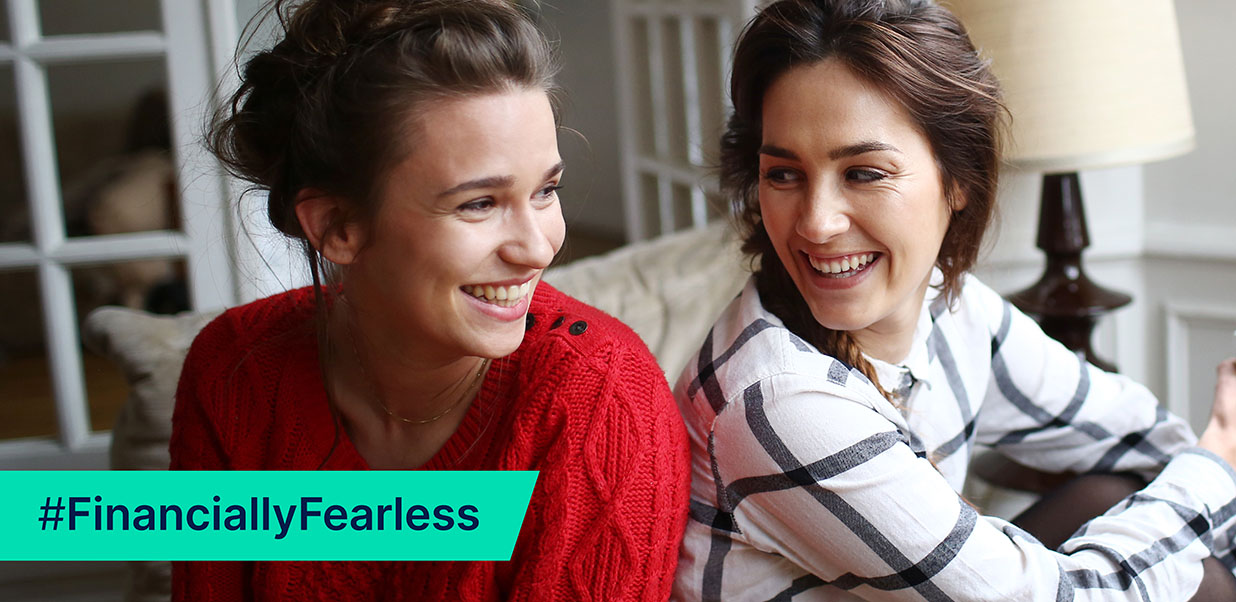Investing in my 20s – what every woman should know
Your twenties and financial freedom. Not usually two concepts we think go together.

Last Updated: 1 January 2003
Your twenties are about finding your feet. You might graduate or land your first ‘proper’ job in the early part of that decade, and this goes hand-in-hand with frivolous fun. We try to recreate Friends and find secret joy in the struggle of being broke because we spent all our spare money on tequila, or in my case, Aldi’s bottom shelf Sauvignon Blanc.
This means that investing is often very far from our minds. We think it’s something that can wait. I did too.
But finding financial freedom starts in your twenties as it’s the best time to lay the foundations for your future self. Chances are it’s your first time with a steady income which means after you’ve built your rainy-day fund, you can think about starting to put some aside for investing and let it work for you.
While this article can help you make the most of your money, it isn’t personal advice. If you’re not sure what’s right for your circumstances, ask for financial advice.
The magical world of compounding
Hear me out. Let’s call the average round of drinks around £30 these days. This one round of drinks invested every month into an ISA and left to grow at 5% each year for 30 years, would turn into over £24,560. Remember of course, this is just an example, returns aren’t guaranteed, and the figure does not account for inflation, charges or taxes. I’ve got your attention now.
Up that to £200 a month and you’d have over £160,000, about £90,00 more than you would if your money was left in cash (again not taking into account inflation or charges). The gap is even bigger when you consider the eroding effect of inflation on cash.
This rate of increase, sometimes hard to grasp, is made possible by compounding. What is this wizardry you ask? Well, investments, when left alone, have the potential to grow exponentially.
For instance, it seems impossible that if you fold a piece of paper in half 27 times, you’d reach higher than the top of Mount Everest. But you would. And that’s similar to how compounding works. As your investments grow, they can attract even more growth, a bit like a snowball collecting snow as you roll it down a hill.
The calculation above is only an example. Actual returns will vary depending on the investments you choose. Unlike the security offered by cash, the value of investments can go down as well as up in value, so you could get back less than invested.
But why is that related to your twenties?
The magic ingredient in compounding is time. Adding bigger amounts to your investment pots at a later age doesn’t have the same effect as investing less at an earlier age. And it isn’t just your retirement that investing will change.
We always say it’s best to invest with at least five years in mind. If you invest for the first time in your twenties, it could be used towards a life goal. I didn’t get the investing memo until I was in my early twenties either. But by taking the leap I’ve been able to fund trips and a house deposit that simply couldn’t have happened otherwise.
And why women?
Money is a feminist issue. By retirement, the average pension pot for a man is £205,000 and for a woman its less than a third of that at £69,000. Over the course of a lifetime, a woman will have to work 19 years more than a man to save the same amount in her pension.
The pay gap, the pension gap, the motherhood penalty and the good daughter penalty all feed into us having less financial resilience as we get older. We can start to close that gap by investing today.
Find out how to investFind out how to invest
Join the Financially Fearless mailing list
Financially Fearless is the first step in empowering women to improve their financial health and wealth. Take your first step today and sign up for weekly emails packed full of expert content using the form below. Or if you’re on Instagram follow us @FinanciallyFearless_hl.
Please correct the following errors before you continue:
Hargreaves Lansdown PLC group companies will usually send you further information by post and/or email about our products and services. If you would prefer not to receive this, please do let us know. We will not sell or trade your personal data.



